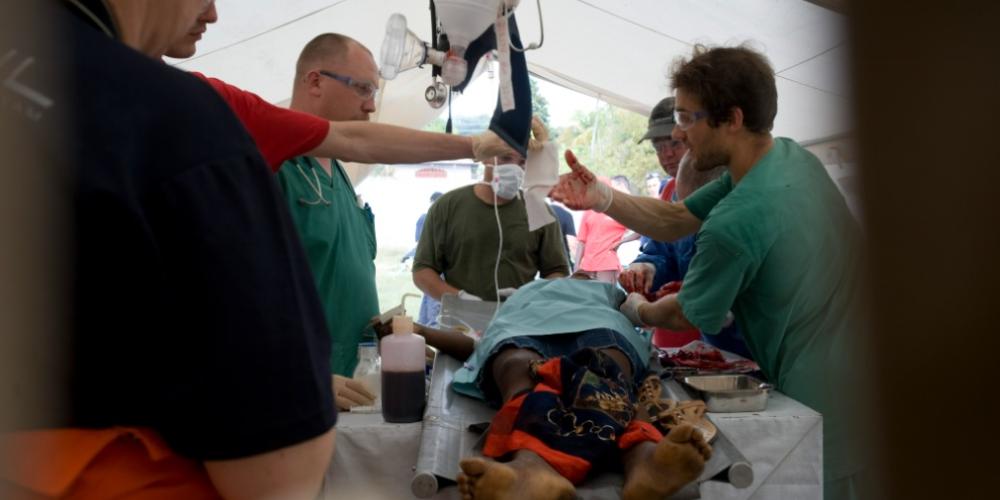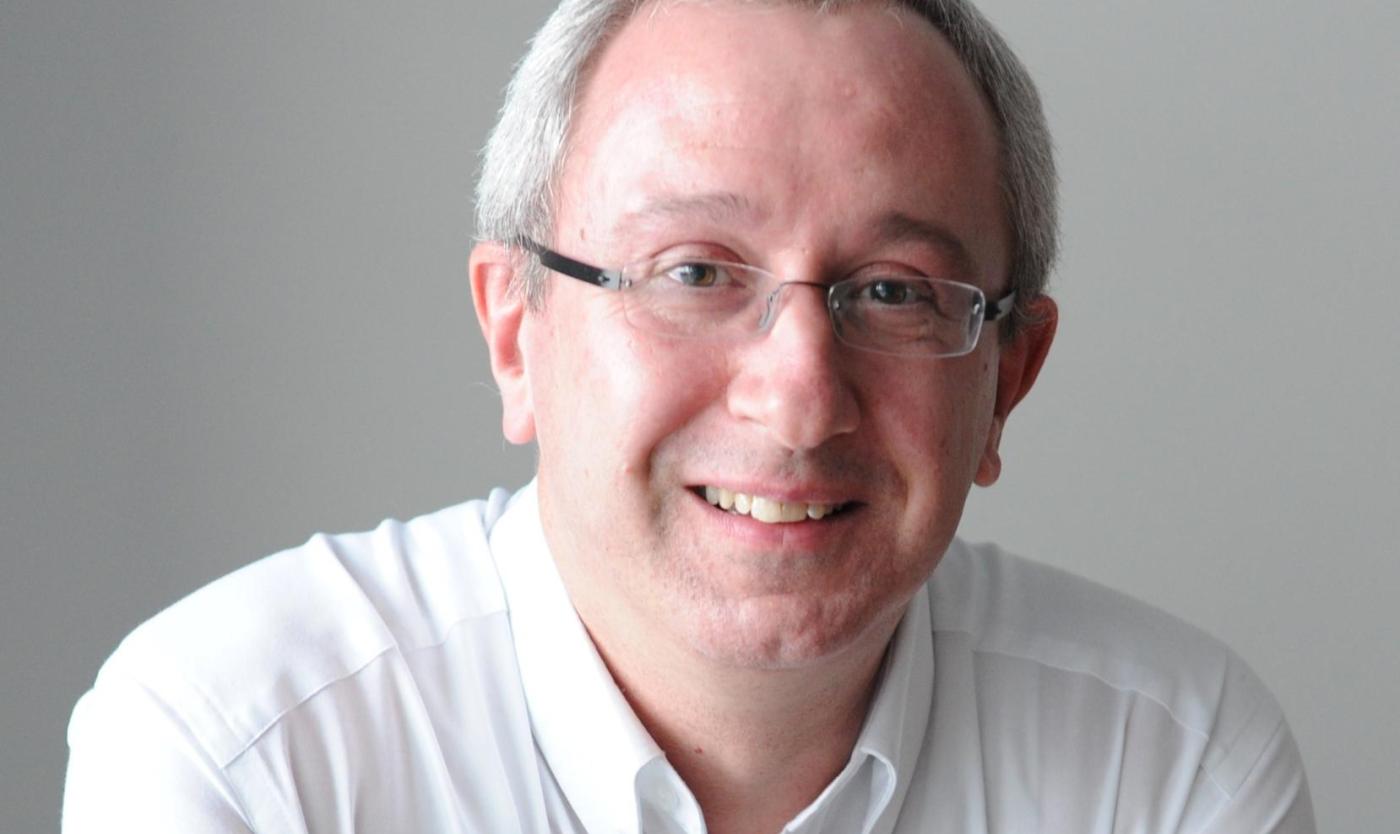
Ives Hubloue is chairman of the Emergency and Disaster Medicine Research Group at the VUB and Head of the Emergency Department at the UZ Brussel. The Belgian B-FAST team is in Turkey where they are setting up a field hospital in the earthquake-hit area. Hubloue explains how it works. Want to help the affected people directly? Make a donation via Consortium 12-12. UZ Brussel, the VUB hospital, and the UZ Brussel Foundation are also raising money for medical support in the affected areas. Make a donation here.
How big is this disaster?
Immense. The World Health Organisation (WHO) estimates that there have been over 50,000 deaths. I fear they are not far off.
We are now only seeing the tip of the iceberg. Besides the deaths, it has also had a huge devastating impact on housing, as well as medical infrastructure. And then we only see what is happening in Turkey. We barely get any news from Syria. The affected border region already had a difficult history.
The aid started fast in Turkey
It is a huge international operation under WHO coordination. The first objective is search and rescue. These are the teams you often see in the press: men and women wearing helmets searching the collapsed buildings for survivors. Often with the help of a dog. Right after an earthquake, you can still save lives by getting people out from under the rubble. That is a race against time. A lot of people are involved because you have to comb the whole area quickly.
Then comes the second wave of relief workers, who set up field hospitals. Then we Belgians with the medical disaster team B-FAST spring into action. B-FAST stands for Belgian First Aid and Support Team. The Belgian authorities have now made a conscious decision to provide assistance with the establishment of a field hospital.

What is the role of the VUB and UZ Brussel for B-FAST?
"Several nurses and doctors coming from the VUB and the UZ Brussel have taken additional training courses and are continuously on standby to be called up, if necessary, for a mission like this. Besides medical staff (doctors, nurses, pharmacists), there are also lots of logistics staff, including firefighters, who do the set-up, among other things."
Does it require a lot of preparation?
You don't just go to a disaster area. First, the country itself has to ask for help. So that was in Turkey's hands. Next, you have to mobilise people. Also, the ministries of defence, health and foreign affairs have to give permission. In doing so, it is essential that the safety of our people is guaranteed. That is not always the case. The Germans stopped work in Turkey for several days because it was not safe.
Then we still need to organise transport and pick a good location with the right road infrastructure.
What does a B-Fast compound look like?
B-FAST's field hospital is a "Role 2 Emergency Medical Team" hospital. There is a reception area with triage where it is determined what happens to the patients. There are several care zones classified according to the severity of the injury. Furthermore, the field hospital also contains an operating theatre, a pharmacy and a small radiology department. There is also a limited hospitalisation ward for 20 casualties. Besides the medical facilities, logistical support for overnight accommodation and food for personnel is also provided.
Are the members of the B-FAST team trained?
The B-FAST team is highly medically professionalised. This is why it was chosen to focus on the field hospital to be deployed in the second phase of the relief effort. All members of the team have received additional training on how international relief works and on the various field hospital materials available. Many team members are already working in an emergency department in their daily work and as such already have experience with urgent situations.
Aren't the staff - they are all volunteers - in danger of being traumatised themselves?
Yes indeed, that is a risk. We have learned that it is mainly about psychosocial factors, such as Post Traumatic Stress Disasorder (PTSD). In previous missions (e.g. after the earthquake in Haiti), an initial and reception as well as follow-up by crisis psychologists was provided when the teams returned.
Financial help is important now. You can make donations
You can make a donation through the 12-12 Consortium. Donations to 12-12 are distributed to the seven members of the Consortium. These are Caritas International, Doctors of the World, Handicap International, Oxfam Solidarity, Red Cross, Plan International Belgium and UNICEF Belgium. The money thus goes to humanitarian relief and longer-term reconstruction.
Many employees of the UZ Brussel, the university hospital affiliated with the VUB, want to do their bit for the earthquake victims. That is why the UZ Brussel and the UZ Brussel Foundation are joining forces to raise money for medical equipment and medication. Make a donation here.